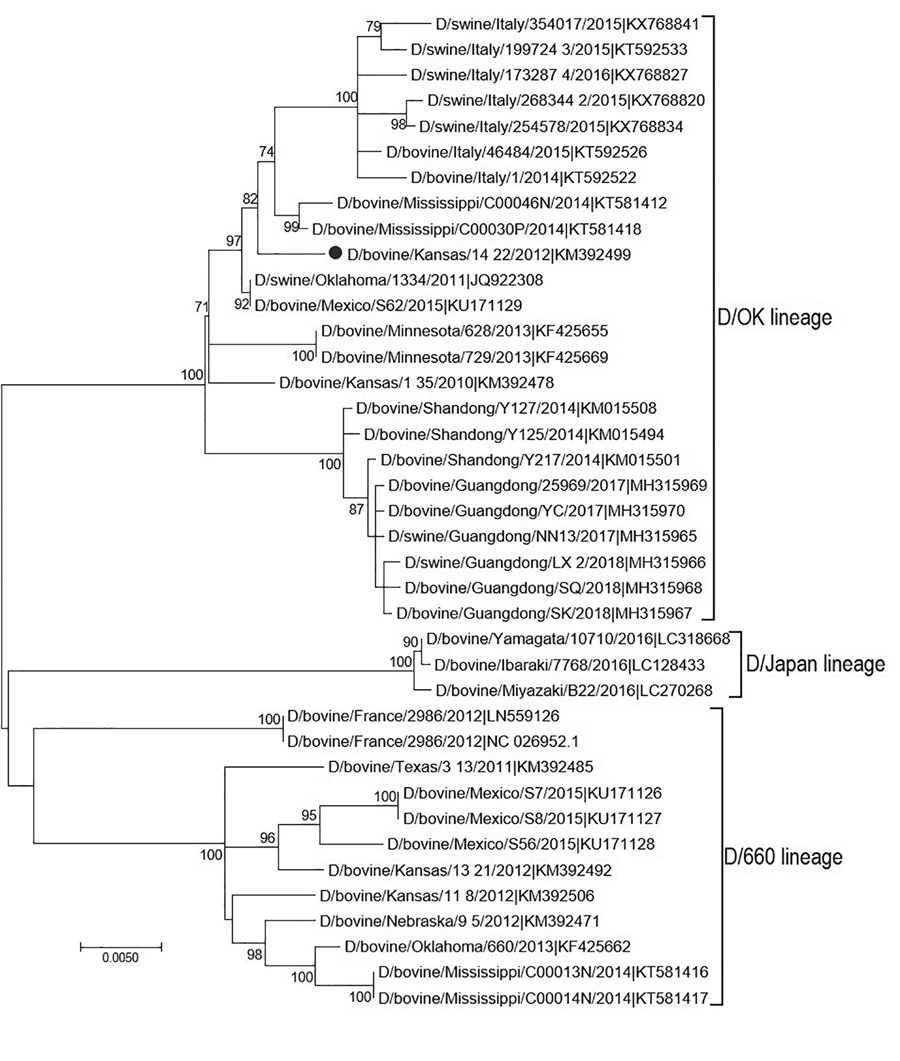Volume 25, Number 11—November 2019
Research
Serosurvey for Influenza D Virus Exposure in Cattle, United States, 2014–2015
Figure 2

Figure 2. Maximum-likelihood phylogeny of the influenza D virus hemagglutinin-esterase fusion (HEF) gene constructed for study of influenza D virus in cattle, United States. Representative US strain D/bovine/Kansas/14-22/2012 (black dot), used as antigen in hemagglutination inhibition analysis, was aligned with reference strains from the Influenza Research Database (http://www.fludb.org) obtained on September 28, 2018. Bootstrap values >70% (1,000 replicates) are shown to the right of the nodes. Scale bar represents nucleotide substitutions per site.
Page created: October 15, 2019
Page updated: October 15, 2019
Page reviewed: October 15, 2019
The conclusions, findings, and opinions expressed by authors contributing to this journal do not necessarily reflect the official position of the U.S. Department of Health and Human Services, the Public Health Service, the Centers for Disease Control and Prevention, or the authors' affiliated institutions. Use of trade names is for identification only and does not imply endorsement by any of the groups named above.